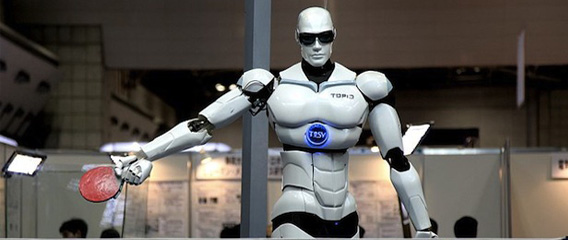Will Photographers Be Replaced By Robots?
There are many reasons why “photographer” and “photojournalist” ranked so low on last year’s “best and worst jobs” list, but according to a paper released by The Oxford Martin Programme on the Impacts of Future Technology at Oxford University, the threat of computerization isn’t one of them.
 It might seem like a silly finding, but it’s significant in its own way. The study — which was put together by Drs. Carl Benedikt Frey and Michael A. Osborne — argues that up to 47% of US jobs are in danger of being handed over to computers over the next 20 years.
It might seem like a silly finding, but it’s significant in its own way. The study — which was put together by Drs. Carl Benedikt Frey and Michael A. Osborne — argues that up to 47% of US jobs are in danger of being handed over to computers over the next 20 years.
Of the 702 occupation types studied, however, photographers (and, fortunately for us, writers) seemed to be dodging this bullet. With #1 being the least probable to be replaced and #702 the most probable, photographers rank at #91.
That might not be number 1, but the study calculates the probability that photography will be handed over to our future robot overlords at a measly 2.1%. (Side Note: Rejoice! Telemarketers ranked at #702, with a 99% probability of being replaced).
Not all photography-related vocations were so lucky though. “Camera and Photographic Equipment Repairers” and “Photographic Process Workers and Processing Machine Operators” ranked at #658 and #694, with a 97% and 99% chance of being replaced, respectively. And models, they rank at number #669, with a 98% chance of being replaced.
“Our findings imply that as technology races ahead, low-skilled workers will move to tasks that are not susceptible to computerization — i.e. tasks that required creative and social intelligence,” the paper states. “For workers to win the race, however, they will have to acquire creative and social skills.”
Since photography already requires those skills, photogs are safe from this particular evil. To paraphrase rap artist Jay-Z, photographers got 99 problems, but robots ain’t one. Then again, how exactly will the photography industry look when all of your models are digital? … We’ll let you figure that one out.
You can read the full 72-page paper over on The Oxford Martin Programme on the Impacts of Future Technology website by clicking here.

© 2013 Copyright ShootTheCenterfold.com. All rights reserved.




















